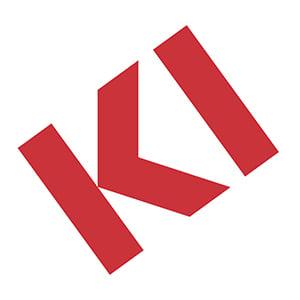Corporate Responsibility in Making a Better World

We’re working hard to improve the health of our planet. This week, we at KI are proud to release our annual corporate social responsibility report to share the steps we’re taking in caring for our planet and community.
Environmental Stewardship
While sustainable practices have always been a part of our heritage at KI, we’ve sharpened our environmental focus and set more aggressive goals. Chief among them was a goal to reduce our facilities’ emissions of carbon dioxide and other greenhouse gases by 25 percent by 2020.
We’ve done even better than that. Last year, our greenhouse gas emissions were down 31 percent relative to 2011 levels. We achieved our goal by reducing our fuel and energy consumption and investing in renewable energy sources.
KI is home to the largest solar panel installation in Northeast Wisconsin. In 2020, our solar panels produced 134 megawatts of energy. That’s equivalent to the amount of energy produced by 1,340 car engines.
You can see detailed, public data on our emissions by viewing our Carbon Disclosure Project report at cdp.net.
Other sustainability goals that we’re working toward include the following:
- Eliminating solvent-based materials such as cleaning materials in manufacturing facilities and replacing them with water-based or powder-based alternatives.
- Incorporating as much pre- and post-consumer recycled material as possible into every product we make.
- Reducing the use of chemicals in our products.
- Using 100 percent recyclable packaging.
- Reducing our municipal water usage.
Thanks to the KI team’s hard work on sustainable initiatives, we’ve been recognized for our commitment to environmental stewardship. KI gained Green Master Level Status this year from the Wisconsin Sustainable Business Council’s Green Masters Program. We also achieved Level certification for 164 sustainable products. And we’ve completed Environmental Product Declarations for five product lines, which quantify their environmental impacts.
Product Design and Sustainability
How does our sustainable design process work? We use a Design for the Environment (DfE) analysis that brings together people from design, procurement and manufacturing. That group analyzes a new product and identifies ways to:
- Increase the amount of recyclable or biodegradable material.
- Minimize energy and water consumption in the manufacturing process.
- Reduce the product’s end-of-life environmental impact.
- Reduce the amount of artificial paints, chemicals and metals.
Using DfE analysis, we’ve introduced products with recycled aluminum, soy-blend foam, cork, wheat board and more. We manufacture these products in ways that reduce waste and enable a “closed-loop” whereby customers can reuse a product or disassemble and recycle it.
For example, our Genius architectural wall is made of 99 percent recyclable material, including glass and aluminum. And because it’s flexible and reconfigurable, customers can reuse it as their needs change.
Similarly, our Opt4 seating is comprised of recycled materials. The mesh fabric on the seat is made from 100 percent post-consumer recycled plastic, mainly from water bottles. All resin components come from 100 percent recycled pre-consumer plastic waste byproducts.
Social Responsibility
At KI, we believe we have a responsibility to help make the planet a better place. We hope you’ll take a moment to read through our report and share your feedback. We’d love to hear from you!
Subscribe
Stay up to date with the latest trends and more.









